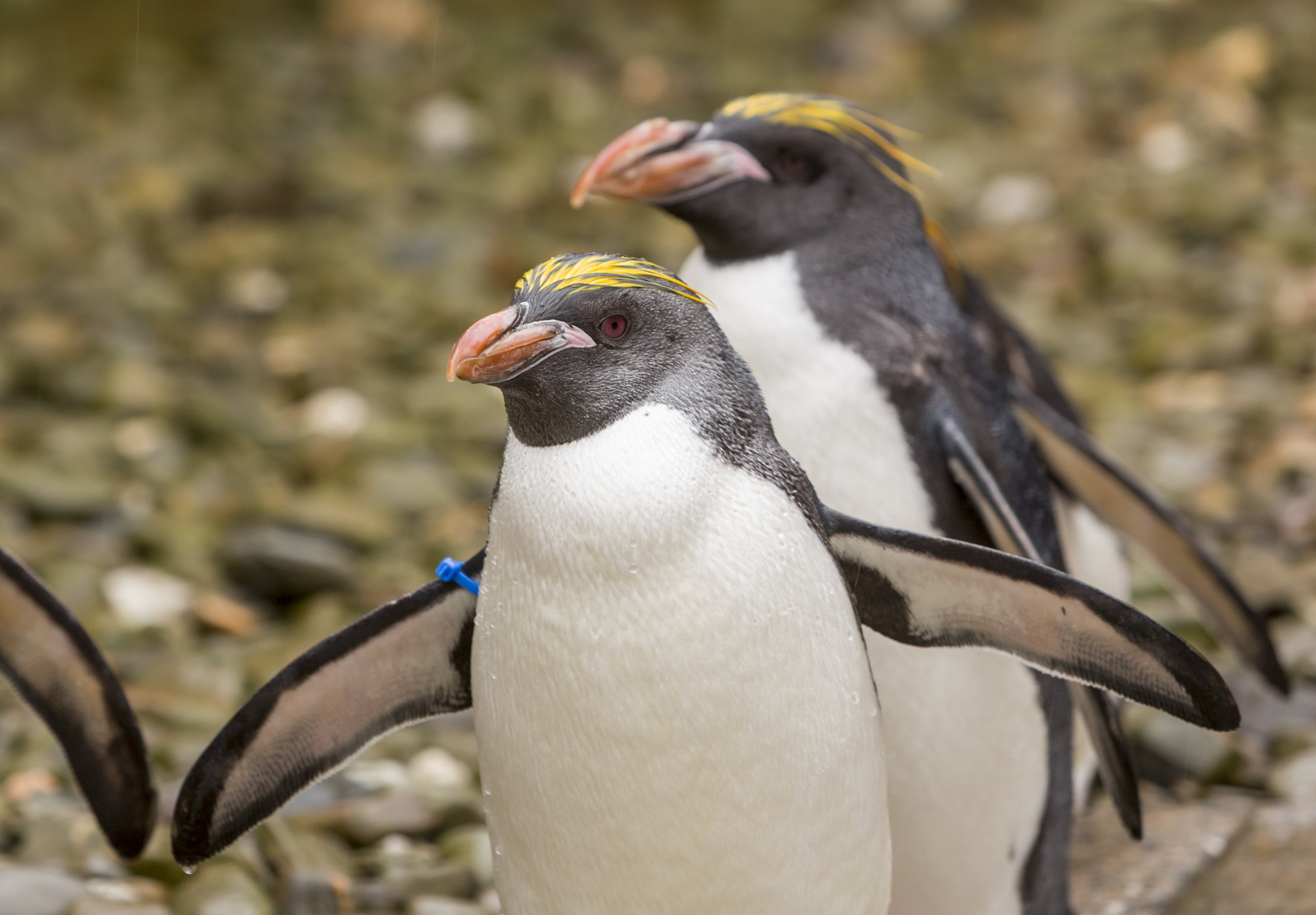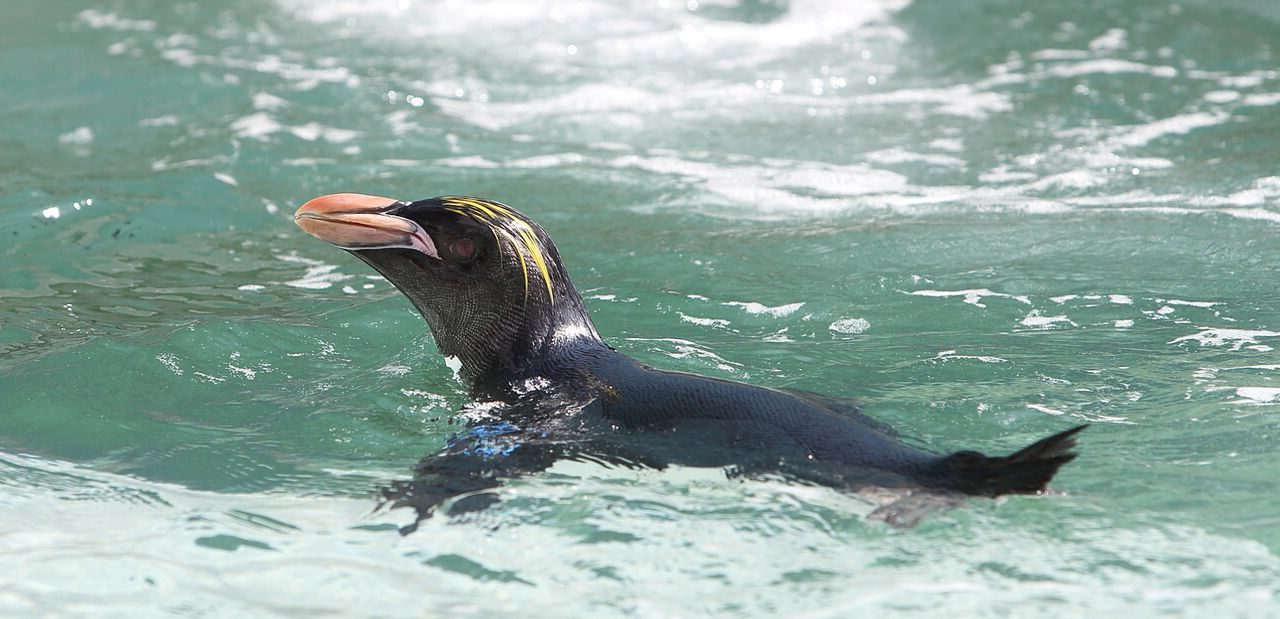Four male macaroni penguins are the latest additions to our zoo.
Exciting times at Penguin Coast as a bachelor group of four macaroni penguins, “The Macaroni Mafia”, have moved in with the Humboldts. The mob of gangsters is made up of Tony the Don, 13, Vinnie the Voice, 7, Frankie the Fish, 5, and Little Nico, 3.
[InsertVideo video=https://www.youtube.com/embed/FCFtTrM4Lys?rel=0 fullscreen=true height=315 width=512]
We’re especially excited as we’re one of only three zoos in Europe to house this vulnerable species – the Macaroni population has decreased by an estimated 30% over the last 30 years – and we’re currently on the waiting list for females so we can begin a breeding programme.

Our new penguins join us from Living Coasts zoo and aquarium in Torquay and will live in our Penguin Coast enclosure alongside their Peruvian penguin counterparts. Best known for its distinctive yellow crest feathers and prominent orange beak, the macaroni penguin is a large species of penguin found in the Sub-Antarctic and Antarctic Peninsula. Its common name is thought to have been inspired by its crest feathers; the term ‘Macaroni’ was used in 18th-century Britain to describe a man whose style of dress was flamboyant. Who knew?!

Macaroni penguins live on cliffs and rocky areas above the ocean and get around by hopping, rather than waddling. Larger than the Humboldt species, an adult macaroni penguin has an average length of around 70 cm. Male and females are similar in appearance although females tend to be smaller. Macaroni penguins can live up to 20 years.
Catrin Thomas, penguin keeper at Folly Farm, said:
[Pullout] “We’ve really been looking forward to the arrival of the macaroni penguins and it’s been great getting to know their personalities over the past few weeks. They definitely live up to their namesake – they’re a very proud species and spend a lot of time preening, but they’re also very gentle and a real pleasure to work with.
“Tony is definitely the Don. You can tell the others really admire him, they all follow his lead. Vinnie is the vainest one of the group, he loves looking in the mirror and likes to help clean the enclosure by chasing after the brushes. Nico fancies himself a bit of a stud, he likes to show off on the rock in the middle of the pool, and Frankie spends most of his time following Tony around learning the ropes. They’re really good friends and they’re settling in well.
“It’s also really satisfying to know that, in taking on this group of surplus males from Living Coasts, we’re helping in the conservation of a vulnerable species of penguin. We’re looking forward to introducing them to the public and hope our visitors love them as much as we do!” [/Pullout]